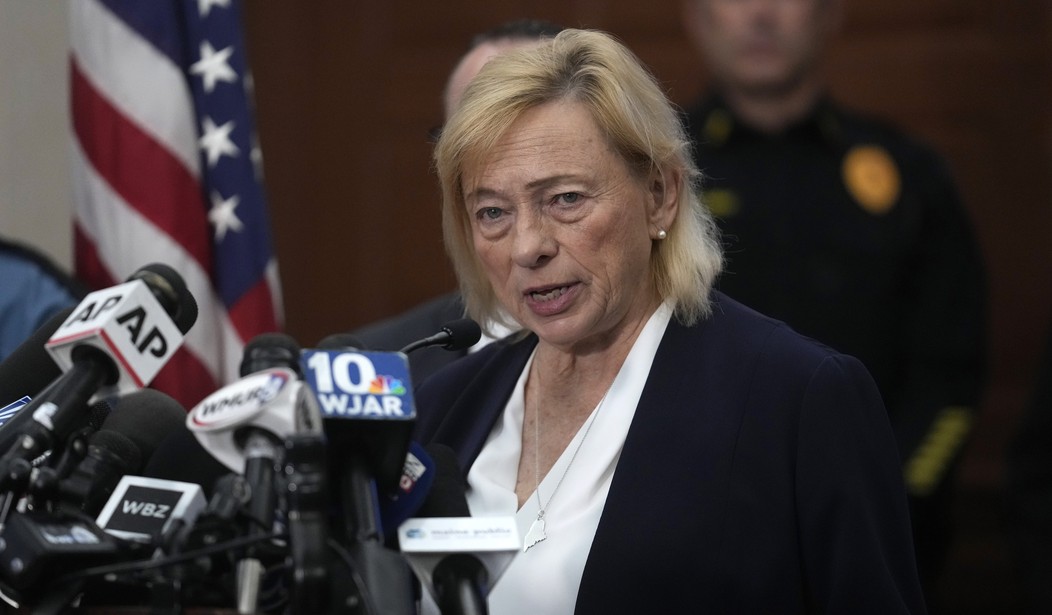Janet Mills bucked the trend of Democratic governors demanding bans on semi-automatic firearms during her State of the State address to Maine lawmakers on Tuesday night, but she did call on legislators to approve a couple of more modest gun control measures. In fact, Mills didn’t push for any of the anti-2A bills that gun control groups in the state have been demanding in the aftermath of the shootings in Lewiston last fall; a 72-hour waiting period, “universal” background checks, a “red flag” law, and a ban on so-called assault weapons.
Instead, Mills offered what the Bangor Daily News described as a “novel approach” to background checks, as well as changes to the state’s “yellow flag” law and the existing ban on selling guns to prohibited persons.
The biggest of the gun-related changes that Mills floated Tuesday was the one mandating background checks for all advertised gun sales. Anybody selling a gun through the classified magazine Uncle Henry’s, Facebook, Craigslist or other platforms would have to visit a gun dealer and check the buyer against the National Instant Criminal Background Check System.
…
Mills’ approach on background checks would be novel. Federal law makes licensed gun dealers perform them. Maine is one of the 29 states that does not exceed that law. Of the 21 states that do, only 16 cover all gun sales. None of them limit background check mandates to advertised sales only, according to Giffords, a gun control group.
The governor also wants to toughen penalties for selling to felons or others prohibited from having guns. Mills would expand an existing law prohibiting people from “intentionally or knowingly” selling to prohibited people by adding “recklessly” and then upgrading illegal sales from a misdemeanor to a Class C felony.
Mills also floated changes to the “yellow flag” law she negotiated with the gun-rights Sportsman’s Alliance of Maine in 2019. It allows police to take weapons away from people deemed dangerous by a medical professional and a judge. Mills is proposing to allow police to take people into protective custody in limited circumstances as part of the law.
The Sagadahoc County Sheriff’s Office, which dealt with complaints about Card in the months before the shooting, has said the law did not allow them to take him into custody. Some experts have said they could have triggered the yellow flag process nonetheless. Gun control advocates have called for a stricter “red flag” law that would cut out medical professionals.
As pleased as I am to see the governor reject the demands of the gun control lobby and many Democratic lawmakers, gun owners in the state shouldn’t breathe a sigh of relief just yet. Mills didn’t say anything about vetoing other anti-gun measures that end up on her desk, and the Democratic majorities in both the House and Senate could still go much further than the legislation she floated on Wednesday evening. Gun control activists are pulling out all the stops to get their agenda enacted, including hiring the son of the state Senate president to lobby on their behalf.
What Mills is pushing for is problematic in its own right. Requiring advertised sales of firearms to go through a background check would be a nightmare to enforce, not to mention the fact that most social media platforms like Facebook and Craigslist already prohibit advertising guns for sale. The governor’s addition of “recklessly” selling a firearm to the current statute could also lead to a defacto “universal” background check by threatening felony charges to those who sell a firearm to someone without first putting them through a NICS check.
There could also be some devils in the details of her proposed changes to the state’s “yellow flag” law. As the Bangor Daily News notes, gun control advocates want to scrap the “yellow flag” law entirely and replace it with a “red flag” law that does not involve any sort of mental health evaluation. I’m not a fan of Extreme Risk Protection Orders in general, both because of due process concerns and the fact that they cannot address the actual dangerousness of an individual who poses a threat to themselves or others, but Maine’s law at least has a few more guardrails than what is normally found in an Extreme Risk Protection Order policy. Would those protections still be in place if and when police decide to take someone into protective custody, and would that step be taken only to ensure that mental health evaluation takes place?
I still believe that a better approach would be to ensure that those in crisis can get the help they need, rather than just taking away any lawfully owned guns and considering the problem solved. To that end, Millis is proposing two new “crisis receiving centers” that would accept individuals in the grips of a mental health crisis. There’s already one such center in Portland, but the governor wants to see others opened in Lewiston and Kennebec County. Out of all her proposals, this probably stands the best chance of seeing bipartisan support in the legislature given that the focus is actually on mental health and not restricting anyone’s Second Amendment rights.
We’ll be talking more about the governor’s proposals on Bearing Arms Cam & Co later today with David Trahan, the executive director of the Sportsmans Alliance of Maine. I’m looking forward to getting his take on what Mills said (and didn’t say in her State of the State address, as well as getting an update on the status of the bills at the heart of the anti-gunners wish list, and I encourage you to tune in this afternoon for the latest news from Augusta.









Join the conversation as a VIP Member